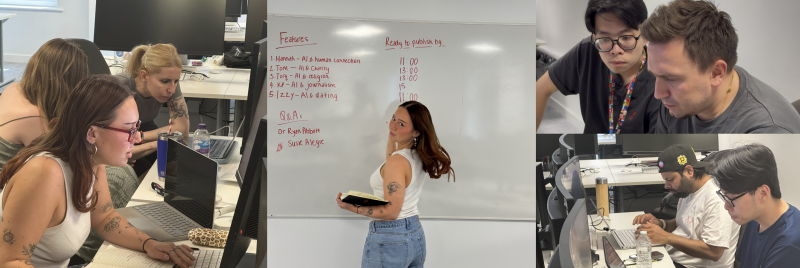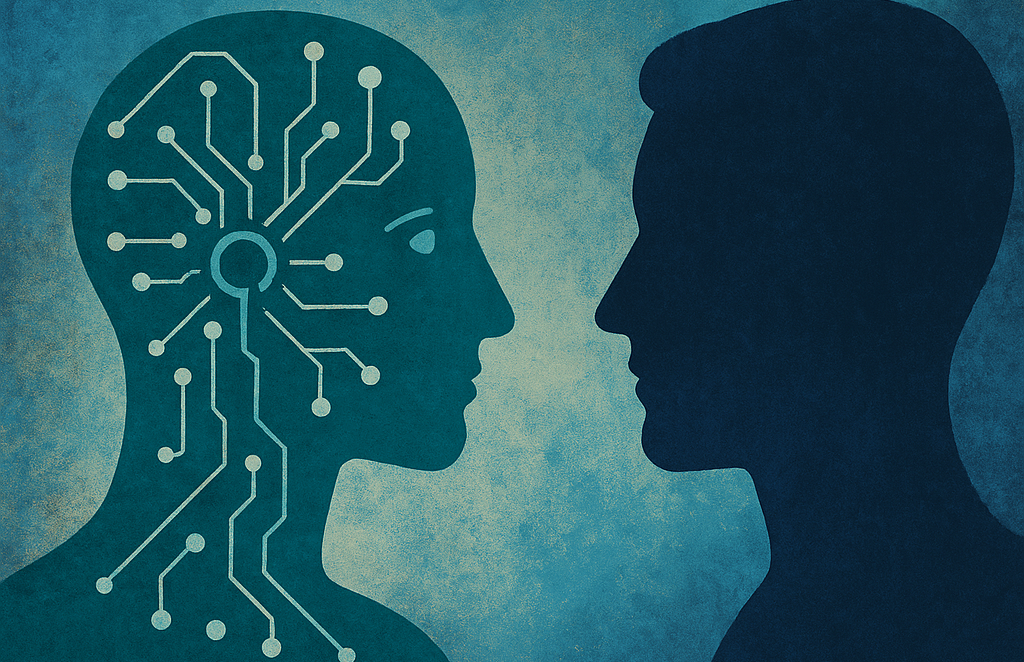Artificial Intelligence is no longer something of science fiction. It has become deeply intertwined into our daily realities–in our homes, our relationships, our health care, our workplaces, and even our prayers. Quietly and quickly, it is transforming how we connect and redefining lives globally.
This week, our reporters examined a wide terrain, from the intimacy of dating apps to the logic of legal systems. We asked questions regarding what the future of living with AI will look like.
Izzy Gallagher spoke to the founder of Iris AI, a dating app that uses artificial intelligence to determine who you find most attractive. Engineering Love chronicles Dr Igor Khalatian and other experts on AI and human relationships discussing how AI can help with the thorny issue of love.
We also report on the complexities of AI integrating into the way we communicate. In They talk, goes for walks and dine together, Hannah Clubley explores how AI tools blur the line between companionship and manipulation.

In one of our two Q&As, Torquil Hopper spoke with Dr Ryan Abbott on how laws must adapt–not to humanise AI, but to treat behaviour equally, regardless of who or what performs it. The conversation covered who counts as an author, inventor–or even a legal subject–in the age of generative machines.
Elsewhere, Susie Alegre, international human rights lawyer and author of Freedom to Think, spoke to us about how “empathetic” AI companions threaten mental autonomy–particularly for young or vulnerable users.
When machines speak the language of God delves into AI’s growing presence in spiritual and faith spaces–from digital sermons to prayer apps–and what these tools might mean for communities grounded in tradition.
In the charity sector, we looked at how machine learning has helped some organisations personalise outreach and optimise funding. See Tom Dinh’s story UK charities turn to AI to expand reach and improve services for more.
We also reported on how AI is being used in journalism, where it streamlines tasks but raises questions about trust and creativity.
Further, we created two AI-assisted features, where the bulk of ‘reporting’ and ‘research’ was undertaken with various AI tools. In Police surveillance with AI, K P Singh focussed on the concerns surrounding surveillance, while Tom Dinh looked at healthcare in Smarter, kinder–faster?
Across these stories, a thread ran clear: AI posed deeper questions than we are thinking about. What happens when intimacy is optimised? What happens when algorithms shape our choices, our beliefs, our sense of self? And what, if anything, should remain untouched by machine logic?
We hope in this edition–through our stories, our interviews, and experiments with AI–we see just how urgently such questions need asking.
Isabel Gallagher & Tom Dinh
Editors
Cover image created with ChatGPT





